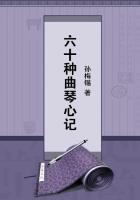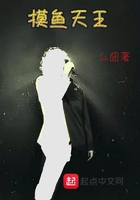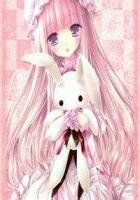"Yes," said Helen. She added, "The season's begun," looking at the lights beneath them. She asked Maria in Spanish whether the hotel was not filling up with visitors. Maria informed her with pride that there would come a time when it was positively difficult to buy eggs--the shopkeepers would not mind what prices they asked; they would get them, at any rate, from the English.
"That's an English steamer in the bay," said Rachel, looking at a ******** of lights below. "She came in early this morning."
"Then we may hope for some letters and send ours back," said Helen.
For some reason the mention of letters always made Ridley groan, and the rest of the meal passed in a brisk argument between husband and wife as to whether he was or was not wholly ignored by the entire civilised world.
"Considering the last batch," said Helen, "you deserve beating.
You were asked to lecture, you were offered a degree, and some silly woman praised not only your books but your beauty--she said he was what Shelley would have been if Shelley had lived to fifty-five and grown a beard. Really, Ridley, I think you're the vainest man I know," she ended, rising from the table, "which I may tell you is saying a good deal."
Finding her letter lying before the fire she added a few lines to it, and then announced that she was going to take the letters now--
Ridley must bring his--and Rachel?
"I hope you've written to your Aunts? It's high time."
The women put on cloaks and hats, and after inviting Ridley to come with them, which he emphatically refused to do, exclaiming that Rachel he expected to be a fool, but Helen surely knew better, they turned to go. He stood over the fire gazing into the depths of the looking-glass, and compressing his face into the likeness of a commander surveying a field of battle, or a martyr watching the flames lick his toes, rather than that of a secluded Professor.
Helen laid hold of his beard.
"Am I a fool?" she said.
"Let me go, Helen."
"Am I a fool?" she repeated.
"Vile woman!" he exclaimed, and kissed her.
"We'll leave you to your vanities," she called back as they went out of the door.
It was a beautiful evening, still light enough to see a long way down the road, though the stars were coming out. The pillar-box was let into a high yellow wall where the lane met the road, and having dropped the letters into it, Helen was for turning back.
"No, no," said Rachel, taking her by the wrist. "We're going to see life. You promised."
"Seeing life" was the phrase they used for their habit of strolling through the town after dark. The social life of Santa Marina was carried on almost entirely by lamp-light, which the warmth of the nights and the scents culled from flowers made pleasant enough.
The young women, with their hair magnificently swept in coils, a red flower behind the ear, sat on the doorsteps, or issued out on to balconies, while the young men ranged up and down beneath, shouting up a greeting from time to time and stopping here and there to enter into amorous talk. At the open windows merchants could be seen ****** up the day's account, and older women lifting jars from shelf to shelf. The streets were full of people, men for the most part, who interchanged their views of the world as they walked, or gathered round the wine-tables at the street corner, where an old cripple was twanging his guitar strings, while a poor girl cried her passionate song in the gutter. The two Englishwomen excited some friendly curiosity, but no one molested them.
Helen sauntered on, observing the different people in their shabby clothes, who seemed so careless and so natural, with satisfaction.
"Just think of the Mall to-night!" she exclaimed at length.
"It's the fifteenth of March. Perhaps there's a Court."
She thought of the crowd waiting in the cold spring air to see the grand carriages go by. "It's very cold, if it's not raining," she said. "First there are men selling picture postcards; then there are wretched little shop-girls with round bandboxes; then there are bank clerks in tail coats; and then--any number of dressmakers.
People from South Kensington drive up in a hired fly; officials have a pair of bays; earls, on the other hand, are allowed one footman to stand up behind; dukes have two, royal dukes--so I was told-- have three; the king, I suppose, can have as many as he likes.
And the people believe in it!"
Out here it seemed as though the people of England must be shaped in the body like the kings and queens, knights and pawns of the chessboard, so strange were their differences, so marked and so implicitly believed in.
They had to part in order to circumvent a crowd.
"They believe in God," said Rachel as they regained each other.
She meant that the people in the crowd believed in Him; for she remembered the crosses with bleeding plaster figures that stood where foot-paths joined, and the inexplicable mystery of a service in a Roman Catholic church.
"We shall never understand!" she sighed.
They had walked some way and it was now night, but they could see a large iron gate a little way farther down the road on their left.
"Do you mean to go right up to the hotel?" Helen asked.














